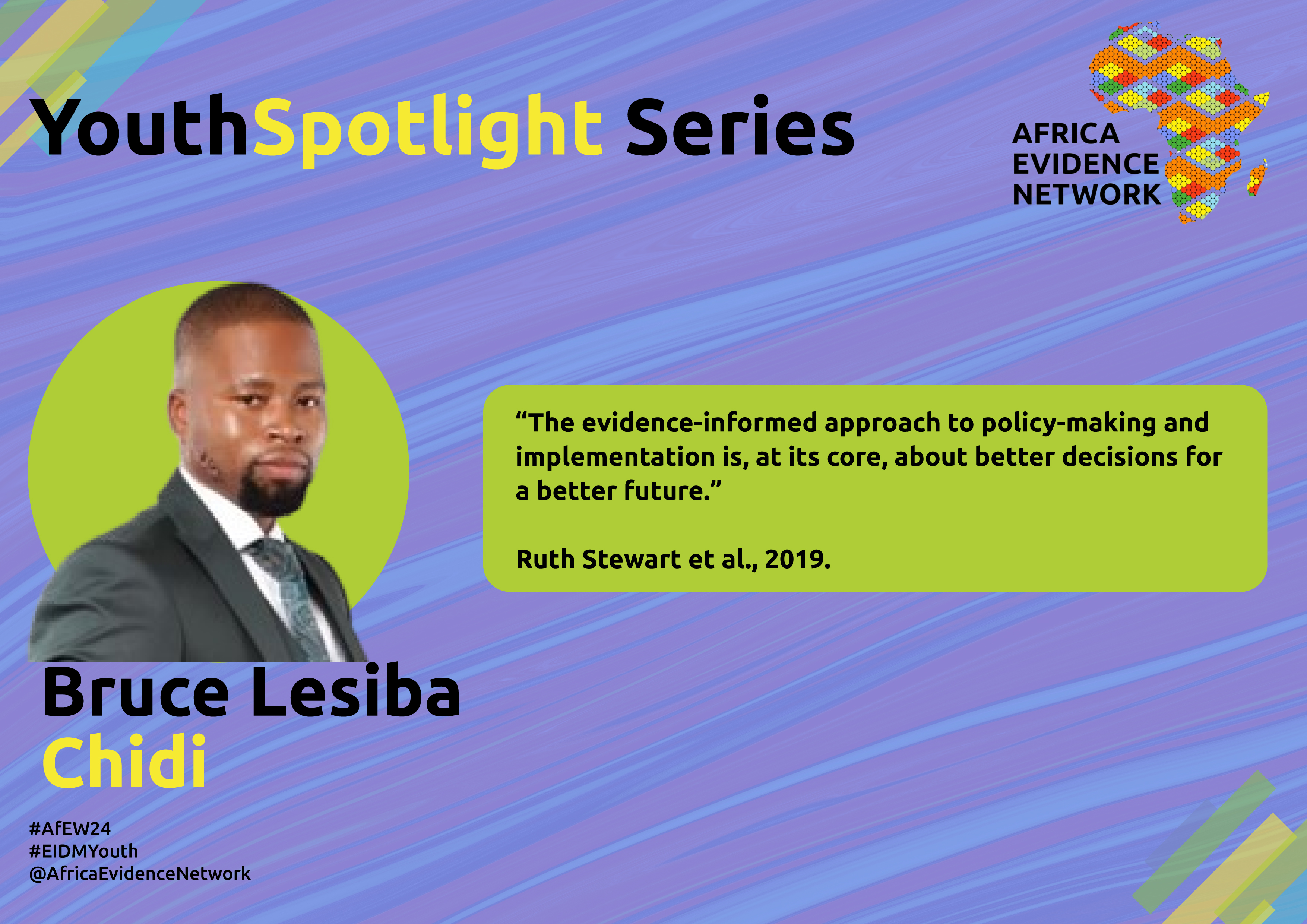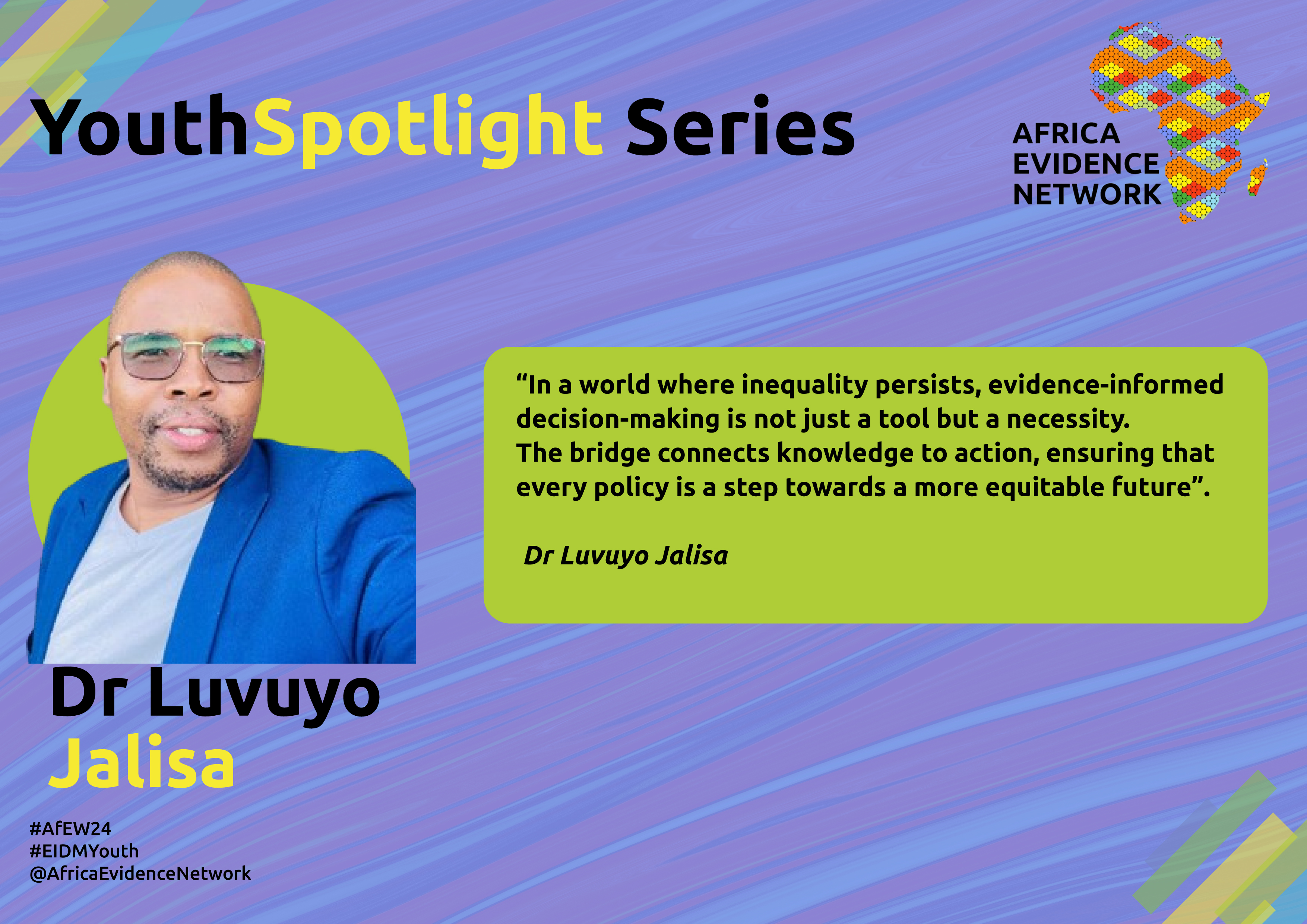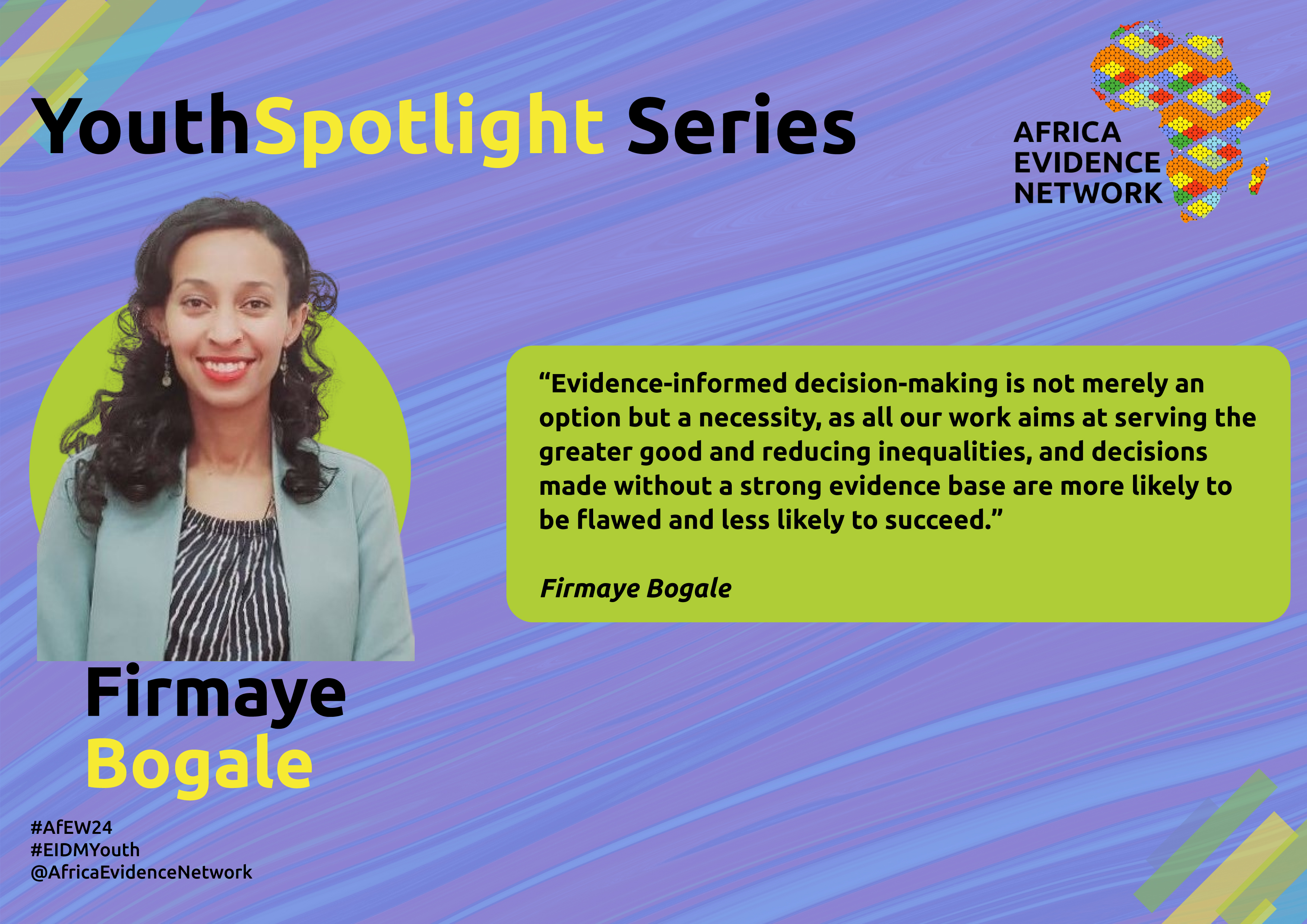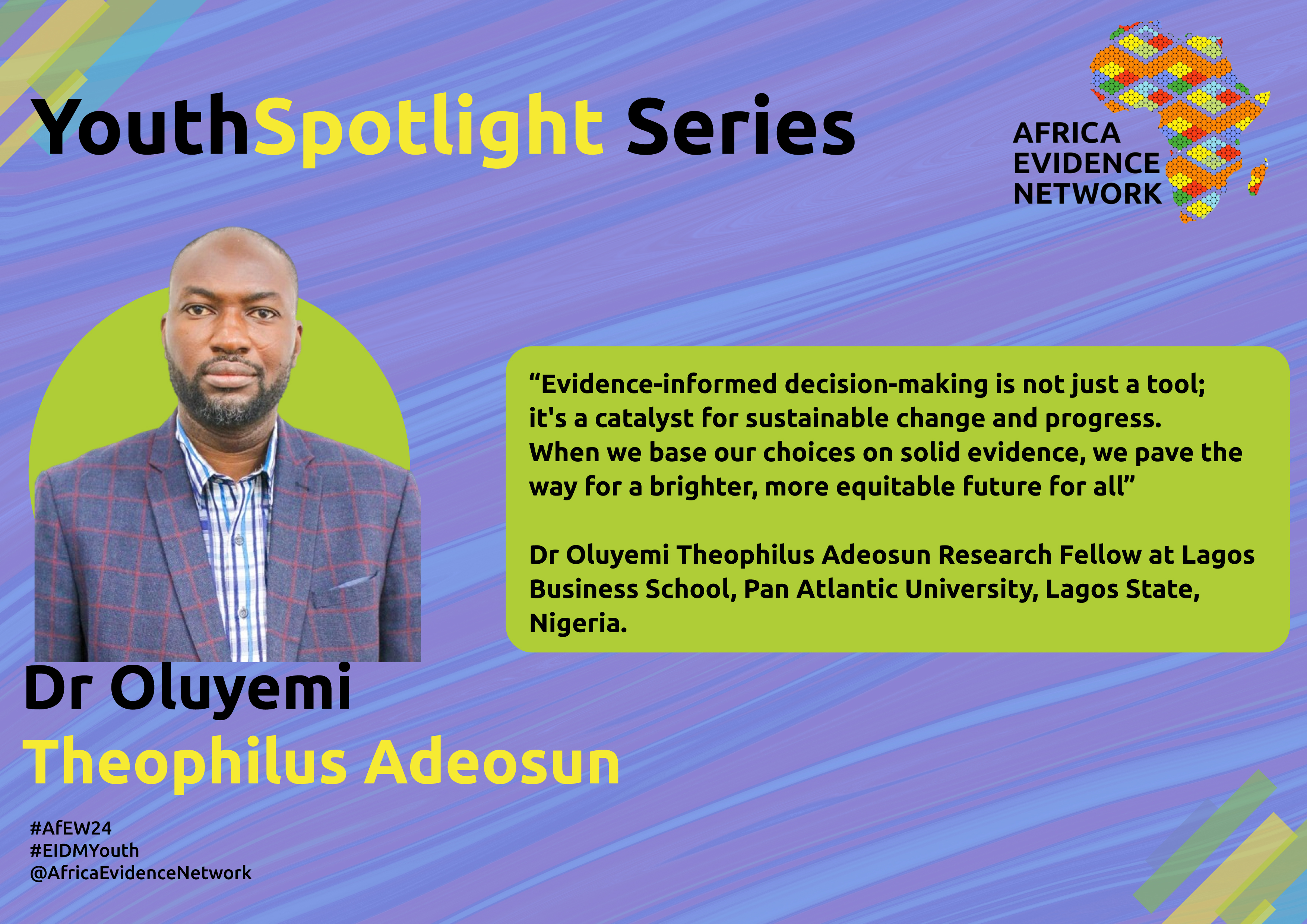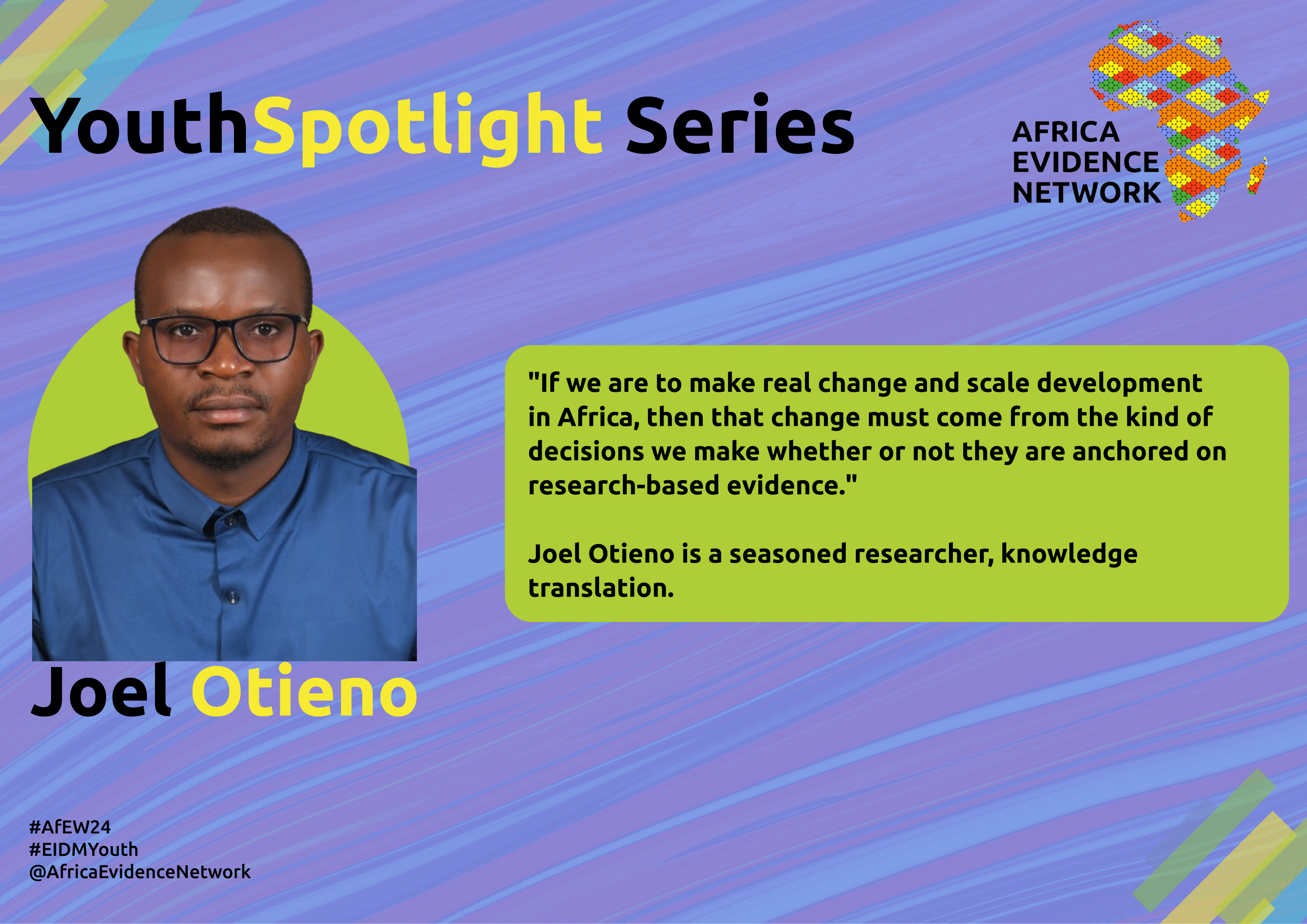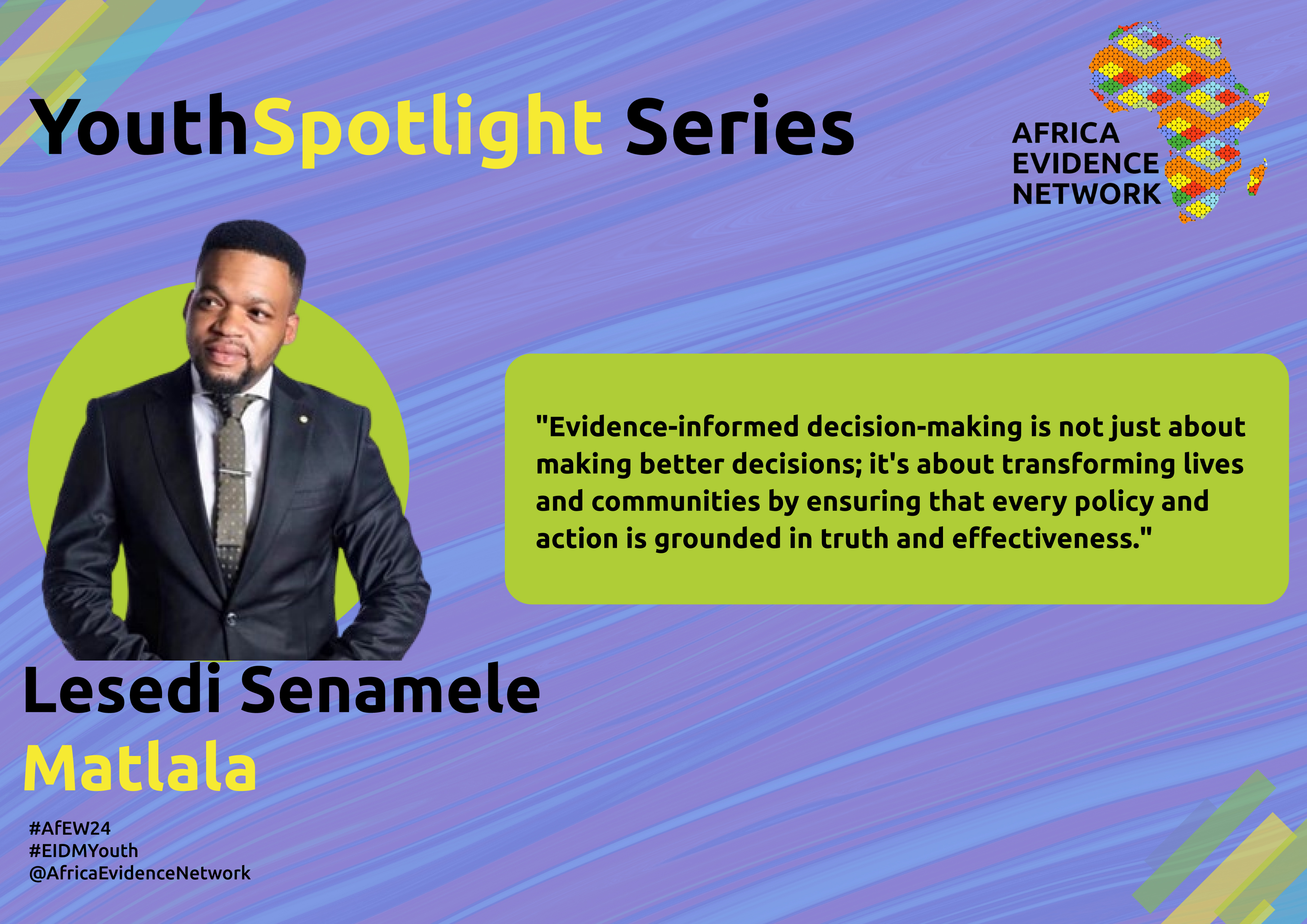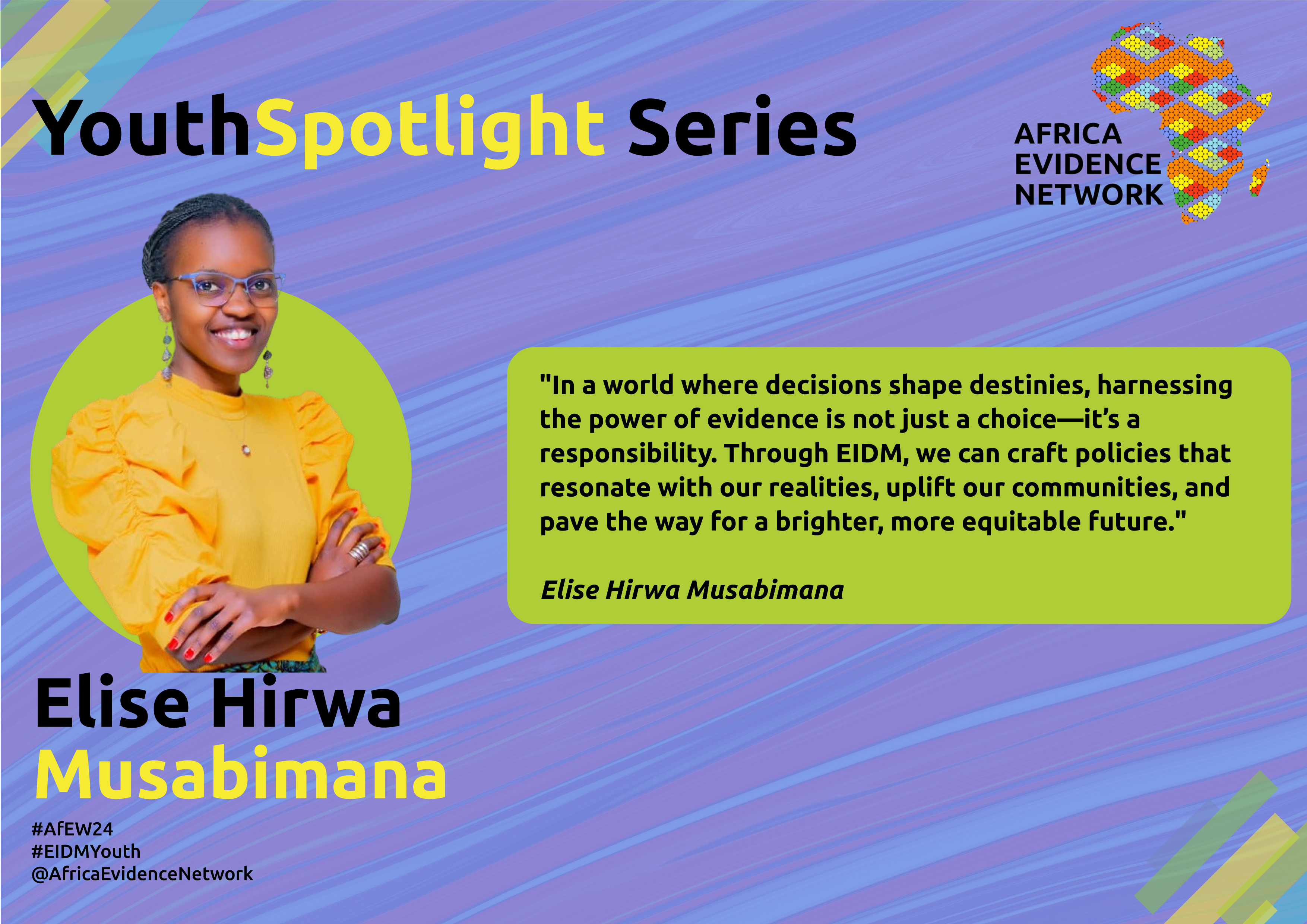
Welcome to the Youth spotlight series, where we offer first-hand insights into young leaders in the evidence-informed decision-making (EIDM) sector. You can discover their stories, achievements, and impact on our community. This is the heart and soul of the #EIDM movement.
In this conversation, the Africa Evidence Network talks to Elise Hirwa Musabimana, a Research Associate and Senior Analyst at Vanguard Economics Ltd.
Making a Difference with EIDM:
What inspired you to get involved with EIDM?
My journey towards EIDM is deeply rooted in my aspirations to become an effective policymaker and a dedicated evidence user. Throughout my academic and professional experiences, I have realised that the foundation of sound policy and impactful decisions lies in robust, credible evidence. To be a proficient evidence user, one must first understand the intricacies of evidence creation. This realisation ignited my research interest. Engaging in research allows me to delve deep into various issues, uncovering insights that might not be immediately apparent. Through research, I have learned to appreciate the meticulous process of gathering data, analysing it, and deriving conclusions that can inform policy decisions. This mastery of evidence creation equips me with the skills to evaluate and utilise research findings in my policy-making endeavours critically.
Can you share a specific accomplishment you're proud of where EIDM played a key role? How did it make a positive impact?
Becoming the spokesperson of the Africa Evidence Youth League (AEYL) and later being nominated for the Africa Evidence Leadership Award have been two significant milestones in my journey. These achievements were sparked by the invaluable network I developed within the Africa Evidence Network (AEN). This network introduced me to wonderful young emerging evidence leaders who are doing incredible work in their respective countries, which, in turn, motivated me to strive for excellence. Through AEN, I had the opportunity to attend the Africa Evidence Conference in Entebbe last year, where the AEYL was officially launched. It was an honour to serve as the AEYL spokesperson at this conference. Additionally, being nominated as one of the Young Emerging Evidence (YEE) leaders in the AEN was a tremendous honour, and I was proud to be named a runner-up.
Have you faced any challenges in promoting EIDM within your community or area of work? How did you overcome them?
The primary challenge I see is the limited funds available to conduct research and produce evidence in various fields. Evidence production requires significant funding for data collection and other processes. This has been a major obstacle for young and emerging evidence leaders in producing their work. As someone who enjoys conducting research and publishing, I resolved to join consortia and collaborate with others to work on research projects and share funds collectively. Additionally, I leverage available secondary data to synthesise and produce more research systematically.
Your Vision for the Future:
What are the biggest challenges you see facing EIDM implementation in Africa right now?
The biggest challenge facing the implementation of Evidence-Informed Decision Making (EIDM) in Africa right now is limited funding, particularly for Made in Africa Evaluation (MAE). As an enthusiast of MAE, I continually question how we can decolonise evaluations when most funding comes from Western countries. To address this, African evaluators and evidence networks must collaborate more to pool resources and incorporate evaluations and research grounded in African contexts. Additionally, we must persuade our governments and policymakers to allocate more funds for research and evidence production. Encouraging greater evidence use is key, but we must ensure this does not compromise the validity and reliability of our research.
How are you working to inspire and empower other young people to get involved with EIDM?
I encourage my peers to create more evidence by leveraging secondary data and collaborating within networks like the Africa Evidence Network (AEN) and the Africa Evidence Youth League (AEYL). Participating in these consortia allows us to pool resources, share knowledge, and collectively overcome the financial challenges associated with primary data collection. Additionally, I advocate for the importance of Made In Africa Evaluations (MAE), urging young evaluators to adopt culturally relevant methodologies that resonate with our unique contexts.
Imagine the future of EIDM in Africa. How do you see EIDM evolving and creating a more positive impact?
I envision a landscape where collaborative initiatives flourish, creating robust platforms for sharing and learning from each other’s diverse activities across the continent. Experts from various fields will unite, utilising their expertise, skills, and resources to support African-rooted research. This collective effort will enhance the quality and relevance of evidence and inspire young Africans to join the EIDM movement. By fostering a culture of collaboration and mentorship, we will empower a new generation of evidence leaders committed to driving positive change through informed policymaking.
Sharing Your Passion (Quote):
Is there a powerful quote or statement you can share that captures your passion for EIDM and its importance?
"In a world where decisions shape destinies, harnessing the power of evidence is not just a choice—it’s a responsibility. Through EIDM, we can craft policies that resonate with our realities, uplift our communities, and pave the way for a brighter, more equitable future."
Perhaps you have a story or anecdote that exemplifies how EIDM is making a difference.
While at the Africa Evidence Conference in Entebbe, I witnessed the impact of Evidence-Informed Decision Making (EIDM). A young researcher from Ethiopia presented her evidence-based study on public health practices and capacity building, which led to policy changes that significantly enhanced the conditions of local health professionals. This experience reaffirmed my belief in the power of evidence to drive equitable policy improvements and inspired me to pursue my work with a renewed mindset to support vulnerable populations.
About the author: Elise Hirwa Musabimana is a Made in Africa evaluation enthusiast and advocate for sustainable development and social justice living in Rwanda. With a commitment to improving healthcare systems and promoting equitable access to resources, Elise's journey in the field of global health delivery has been marked by a series of academic achievements, including publications, professional experiences, and community engagements.
Elise's educational foundation is rooted in her pursuit of understanding and addressing environmental health challenges. She earned her Bachelor of Science in Environmental Health Sciences from the University of Rwanda, where she delved into diverse subjects such as disease control, epidemiology, and food safety. Building upon this groundwork, she pursued a Master of Science in Global Health Delivery, focusing on One Health at the University of Global Health Equity in Kigali. This advanced degree equipped her with a comprehensive understanding of evidence-based global health, pandemic preparedness, and neglected tropical diseases, among other critical topics.
Her academic pursuits have been complemented by diverse professional experiences that have allowed her to apply her knowledge in real-world settings. As a Research Associate and Senior Analyst at Vanguard Economics Ltd, Elise played roles in various research projects, from designing studies to analysing data and writing comprehensive reports. Notably, her involvement in initiatives such as the African Women's Rise Initiative and the Early Childhood Development project highlights her dedication to addressing pressing societal issues affecting vulnerable populations.
In addition to her professional endeavours, Elise is deeply engaged in community service and advocacy. As a Volunteer at the Rugero Adolescents and Reproductive Health program and a Member of the Grant Writing Committee at Rotary Club Kigali Virunga, she actively contributes to initiatives to empower youth and promote reproductive health education. Moreover, her previous role as Founder and Director of Partnerships at the University of Public Health Students Association underscores her leadership and organisational skills in fostering collaborations for community development.
Elise's expertise extends beyond her professional and academic achievements. She is proficient in both English and French, has strong analytical skills, and is well-versed in various data analytics tools such as SPSS, R, ArcGIS, and MAXQDA. Her ability to effectively communicate complex ideas and collaborate with diverse stakeholders has been instrumental in her success as a researcher, project coordinator, and advocate for positive change.
Driven by her passion for making a difference, Elise remains committed to leveraging her expertise to contribute to sustainable development efforts, particularly in Rwanda and Africa. In her free time, she enjoys reading political books, networking, and travelling in rural areas to understand different perspectives of communities.
Acknowledgements: The author(s) is solely responsible for the content of this article, including all errors or omissions; acknowledgements do not imply endorsement of the content. The author is grateful to Charity Chisoro for her guidance in preparing and finalising this article, as well as her editorial support.
Disclaimer: The views expressed in published blog posts, as well as any errors or omissions, are the sole responsibility of the author/s and do not represent the views of the Africa Evidence Network, its secretariat, advisory or reference groups, or its funders; nor does it imply endorsement by the afore-mentioned parties.
Suggested citation: Musabimana, E.H. (2024) The transformative power of evidence-informed decision-making (EIDM): perspectives of a young and emerging evaluator. Blog posting on 5 August 2024. Available at: https://www.africaevidencenetwork.org/en/learning-space/article/337
